Liz Truss policies: new Prime Minister’s plans for key issues - including NHS and cost of living crisis
and live on Freeview channel 276
Liz Truss has been announced as the UK’s next Prime Minister after beating her opponent Rishi Sunak in the Tory leadership race.
Over the past month and a half, the two candidates have been fighting to replace the ousted Boris Johnson - with Ms Truss ultimately winning the support of 81,326 Tory party members in comparison to 60,399 votes for Mr Sunak.
Advertisement
Hide AdAdvertisement
Hide AdThis result was announced today (5 September) by 1922 Committee Chair Sir Graham Brady.
In her speech at Westminster, Ms Truss spoke of some of the policies she will be pursuing as Prime Minister.
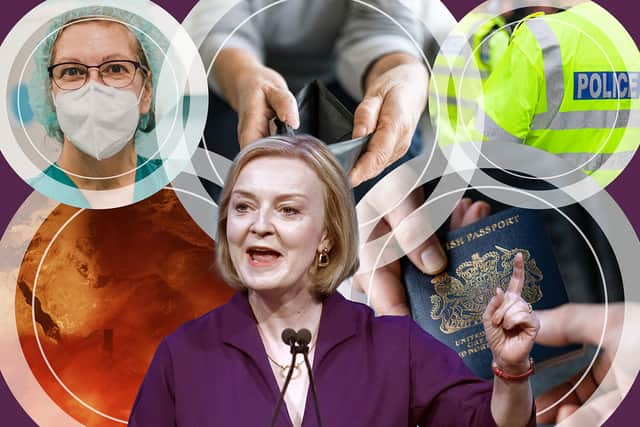

She cited her intention to cut taxes, “grow the economy” and deliver on the energy crisis - which she said she will do by “dealing with energy bills and the long-term issues we have with energy supply.”
But what other plans does Liz Truss have in place for when she enters Number 10? Here’s what she’s said in her campaign bid so far - and what we can expect to see from her first months in office.
Cost of living crisis
Advertisement
Hide AdAdvertisement
Hide AdMs Truss has stressed her preference for using tax cuts to deal with the spiralling crisis throughout the duration of the leadership battle.
She has frequently clashed on the matter with her rival Mr Sunak, who promised to offer increased financial support to vulnerable families and even alleged that Ms Truss’ plans put struggling households at the risk of “real destitution”.
Conversely, the former Foreign Secretary has warned against “taking money off people in taxes and giving it back in benefits,” and has assured supporters that her tax cuts - which will cost £30 billion - are “affordable within our current budget.”
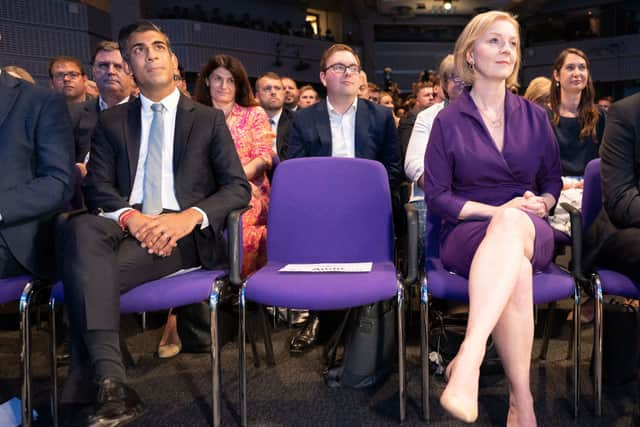

Yesterday (4 September), on the eve of the announcement, she promised to unveil a plan to deal with the energy crisis within a week of her becoming Prime Minister.
Advertisement
Hide AdAdvertisement
Hide AdThis came after calls for the Government to intervene to support the most vulnerable households became increasingly loud.
On the BBC’s Sunday with Laura Kuenssberg, Ms Truss said: “Within one week I will make sure there is an announcement on how we are going to deal with the issue of energy bills and of long-term supply to put this country on the right footing for winter.”
The South West Norfolk MP added however that she could not reveal “exactly what that announcement would be.”
During the leadership race, Ms Truss also said her plans include reversing the national insurance hike and the planned increase to corporation tax - both of which were introduced by Mr Sunak when he was Chancellor.
The NHS
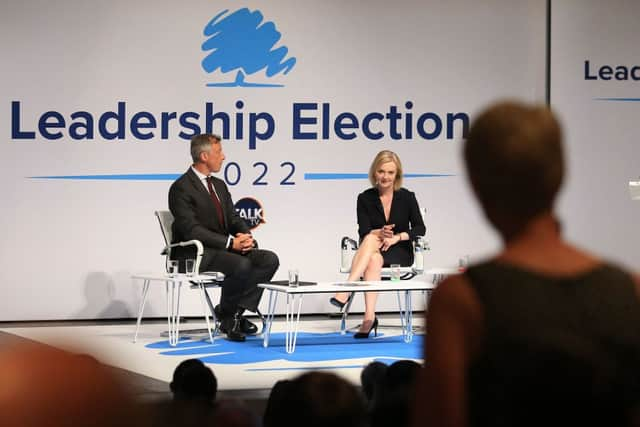

Advertisement
Hide AdAdvertisement
Hide AdThe NHS has not been as heavily debated throughout the leadership race as people may have expected - especially considering the warnings that the UK will face a public health emergency this winter.
What Ms Truss has announced however is a plan to divert a greater share of healthcare spending towards helping with social care - something which would take away funds from the NHS.
The former Foreign Secretary has said that the £13billion a year earmarked for the NHS would instead be given to local authorities to pay for older people’s care.
Experts have said the move would be “robbing Peter to pay Paul.”
Advertisement
Hide AdAdvertisement
Hide AdOn the topic, the South West Norfolk MP commented: “We have people in beds in the NHS who would be better off in social care. So put that money into social care.”
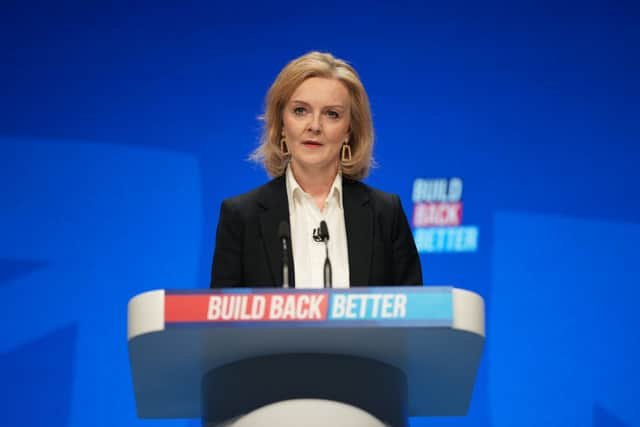

She continued: “What people who work in the NHS tell me is the problem is the number of layers in the organisation they have to go through to get things done - the lack of local decision making.
“That’s what people are telling me is the problem, rather than a lack of funding.”
Environment and climate change
Ms Truss has stressed her commitment to the UK’s 2050 net zero target - and her campaign team has insisted she will focus on renewable energy.
Advertisement
Hide AdAdvertisement
Hide AdHowever, one of the policies she has outlined to help deal with the spirally cost of living crisis is to suspend green levies on energy bills - which are the part of energy bills used to invest in green projects.
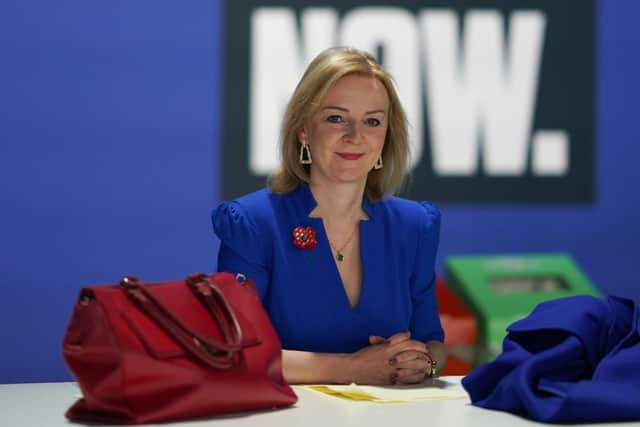

She has also described seeing solar farms on farmland as “one of the most depressing sights” of modern Britain.
In a speech in which he announced £700 million in funding for Sizewell C, outgoing Prime Minister Boris Johnson appeared to criticise some of Ms Truss’ climate leanings.
He urged his successor - who at the time had still not been announced - to “go nuclear, go large”.
Advertisement
Hide AdAdvertisement
Hide AdHe continued: “I tell everybody who thinks ‘hydrocarbons are the only answer, we should get fracking’ and all that, offshore wind is now the cheapest form of electricity in this country.
“Offshore wind is nine times cheaper than gas.”
Ms Truss has spoken of her support for fracking in the past and also reportedly wants to see a push for new drilling in the North Sea.
Immigration
The new Prime Minister is a supporter of the Government’s controversial Rwanda deportation policy - and has even spoken of introducing similar schemes with other countries.


Described by then-Home Secretary Priti Patel as a “world-first”, the scheme will see asylum seekers who are deemed to have arrived in the UK “illegally” sent to Rwanda - where their claims will be processed.
Advertisement
Hide AdAdvertisement
Hide AdBut a NationalWorld investigation revealed that more than 10,000 migrants crossed the Channel to the UK in 100 days since plan announced, with campaigners arguing the plan is not working and is instead wasting taxpayers’ money.
In terms of border control, Ms Truss plans to increase front-line forces by 20% and to double maritime staffing levels.
She also recently wrote on Twitter that she wants to ensure the European Convention on Human Rights (ECHR) “works for Britain”.
Crime
Ms Truss has announced a series of policies on law and order during her leadership bid, including a return to national crime targets - with chief constables held to account if their forces fail to meet them.
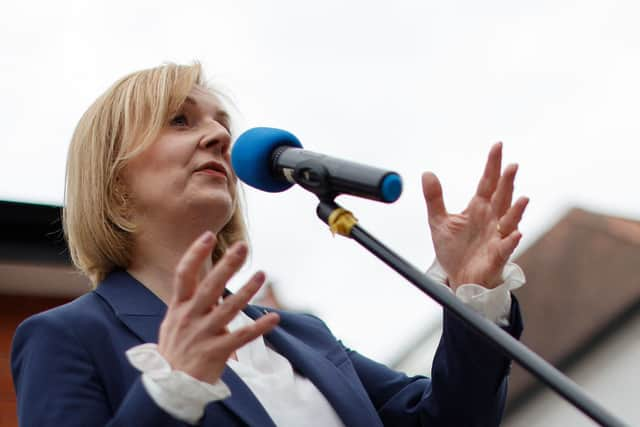

Advertisement
Hide AdAdvertisement
Hide AdShe remarked: “It is time for the police to get back to basics and spend their time investigating real crimes, not hurt feelings and rows on Twitter.”
But police chiefs did not take kindly to her words, with Chief Constable Richard Lewis, who is in charge of boosting crime fighting, criticising her plans as “meaningless” and accusing her of chasing “soundbite-friendly” but unrealistic targets.
Mr Lewis commented: “I was particularly interested in Liz Truss’s headline-grabbing ‘back to basics’ crime strategy, which would involve ranking forces in league tables, a commitment to recruit 20,000 more police officers, cut murders and violent crime by 20%, and an in-person visit by an officer for every victim of domestic burglary.
“While these demands may make attractive headlines, they are meaningless without further explanation from the Tory leadership hopeful.”
Advertisement
Hide AdAdvertisement
Hide AdIn other plans, Ms Truss has said she wants police officers to receive mandatory training on helping domestic abuse victims.
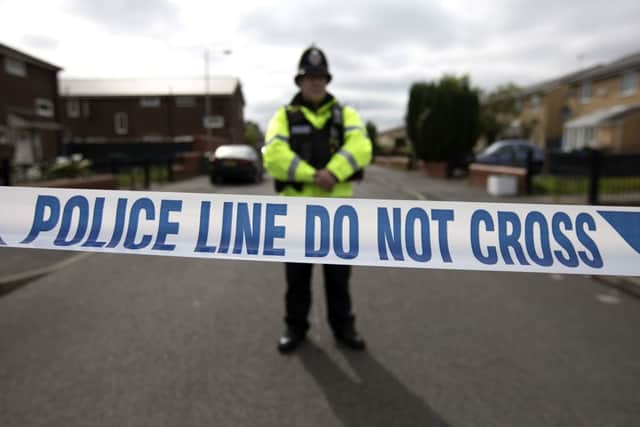

She has also pledged to introduce a National Domestic Abuse Register, which would help break the cycle of repeat offending by abusive men.
The former Foreign Secretary said: "Violence against women and girls doesn’t have to be inevitable. Women should be able to walk the streets without fear of harm and perpetrators must expect to be punished.
“Through increased police training, new offences, faster processes for rape victims and our Domestic Abuse Register, we will ensure victims are protected, and crimes are prevented in the first place."
Defence
Advertisement
Hide AdAdvertisement
Hide AdAs the former Foreign Secretary, Ms Truss has frequently highlighted her role in the UK’s response to Russia’s invasion of Ukraine throughout the leadership race.
In terms of military aid given to Ukraine, the UK has been one of the most generous and fastest-acting countries.
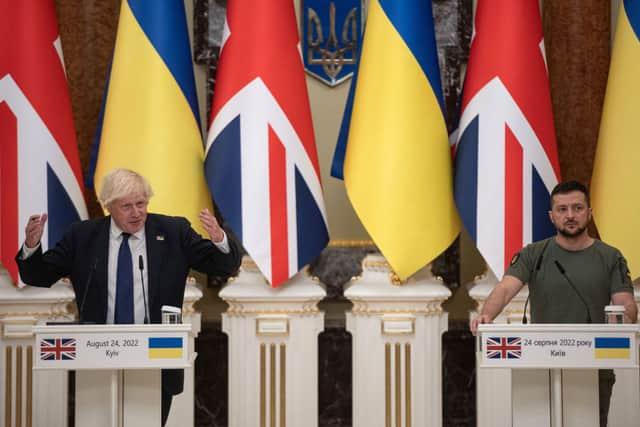

Ms Truss has also said that as Prime Minister, she wants defence spending to be 3% of GDB by the end of the decade - a figure above the current Nato target of 2%.
This target would involve spending tens of billions of pounds more on bolstering the UK’s defensive capabilities - an expense Ms Truss has said is justified given the Russia-Ukraine conflict.
Social issues
Advertisement
Hide AdAdvertisement
Hide AdAccording to TheyWorkForYou, Ms Truss has consistently voted in favour of gay marriage and gay rights.
However, she has been criticised by some LGBTQ+ charities for her stance on transgender people - including her agreement with Labour MP Rosie Duffield in 2021 that “only women have a cervix” and her opposition to self-identification.
Commenting on the Government’s decision to not allow trans people to self-identify, she said: “I have full respect for transgender people, however it wouldn’t be right to have self-identification with no checks and balances in the system - those medical checks are important.”
At a Tory leadership hustings event, Ms Truss has also commented: “I’ve been very clear that single sex spaces should be protected, particularly for young people as well as vulnerable people – vulnerable women in domestic violence shelters, for example – and I can assure you, as prime minister, I would direct that to happen.”
Advertisement
Hide AdAdvertisement
Hide AdOutside of transgender issues, the new Prime Minister also spoke about abortion during the leadership race.
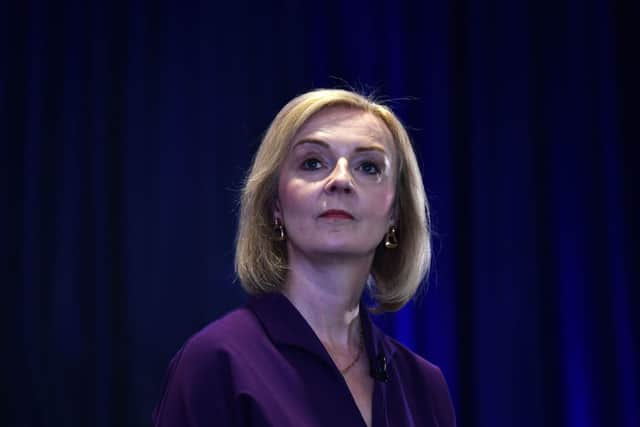

At a hustings event in Belfast, she rejected calls to ban abortion in Northern Ireland when questioned by an audience member.
She instead insisted that the same abortion laws should apply across the United Kingdom, which prompted applause form several people in the crowd.
Education
Ms Truss wants to rework the UK’s education system by expanding high-performing academy schools and replacing failing establishments with free schools.
Advertisement
Hide AdAdvertisement
Hide AdShe also wants to reform university admission procedures so that students apply after receiving their A Level results - rather than applying based on their predicted grades.
In a vague nod to the Conservatives’ ‘Levelling Up’ agenda - which she otherwise has paid little attention to in her leadership campaign - Ms Truss pledged to give every child “the best opportunity to succeed” - wherever they are from and whatever their background may be.
She also said she would allow every A Level student who received top grades to get an interview at Oxford or Cambridge.
Comment Guidelines
National World encourages reader discussion on our stories. User feedback, insights and back-and-forth exchanges add a rich layer of context to reporting. Please review our Community Guidelines before commenting.
